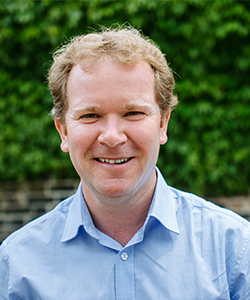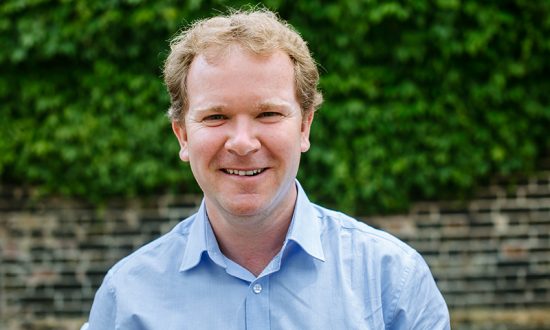Movies like Interstellar, Gravity, The Martian and many more have mesmerised us. Documentaries, books, and films related to this subject have made all of us feel awestruck by the sheer vastness of our universe. If you aspire to study the planets, the solar system, black holes, and other aspects of the universe, you could consider careers in space science and technology, especially careers in Astrophysics and Cosmology. “Astrophysics and Cosmology are extraordinary subjects, seeking to understand how the diverse entities in the universe behave and change. Students should study Astrophysics and Cosmology if they want to contribute to this major cultural goal for humanity, of understanding our place in the universe,” says Dr David Bacon, Associate Director, Professor of Cosmology at the University of Portsmouth. In an email interaction with Higher Education Digest, Dr David Bacon talks about his research on Cosmology and Gravitation, the importance of studying Astrophysics and Cosmology, what it takes to be astrophysicists and cosmologists, and many more.
Your research lies in Cosmology at radio wavelengths, gravitational lensing, theories of gravity and so on. Could you tell us more about the specifics of the research that you are doing now? How will this research impact the world?
Right now, I am spending my time thinking about quite a new way to make a map of the universe. If you zoom out a ridiculous amount from the Earth to a scale where even entire galaxies are little dots, you see that those dots make a pattern. They are not randomly spread out; the dots are in the shape of a 3D web. We will be able to make a map of this vast web using new radio telescopes because the dots give out a faint radio glow. How will this impact the world? Well, in the first instance, I see this as an essential cultural pursuit – humanity wants to understand the universe in which we live! But the data science techniques we are developing are useful in everyday life, to map and track anything from tsunami risk to cancer.
When did you start researching on Cosmology and Gravitation? What sparked your interest?
I guess the first experience I had of research in astrophysics was a summer placement at the end of the 2nd year of my degree. I spent the summer at an astronomy department at a university, doing simulations of star collisions. From then on, I was really keen to go ahead and do research, and the big questions of Cosmology were very attractive to me. I thought then and still think now, that it is completely amazing that we can aim to understand key aspects of the vast cosmos with the rules of physics – and that we can learn new rules of physics by looking at the behaviour of the cosmos.
As the Professor of Cosmology at the University of Portsmouth, how do you integrate your teaching and research?
I love both, and they spill over into each other. For instance, as my colleagues and I discover new ways of measuring the properties of the universe, I cannot help talking about that in class. Often, it is relevant to the topic, but sometimes I just let the students know what the latest excitement is! Equally, my students often ask really searching questions about Cosmology (either in class or in their final year projects) which motivate new research.
Exactly, what is the study of Astrophysics and Cosmology? Why should some study Astrophysics and Cosmology, and what jobs will they get after graduation?
Astrophysics and Cosmology are extraordinary subjects, seeking to understand how the diverse entities in the universe behave and change. Astrophysics is the wider topic, looking at how we can apply and learn about physics for all the phenomena we see in the cosmos. Cosmology seeks to understand the behaviour of the entire physical universe; how did it begin? What is it made of? What does it teach us about fundamental physics? Students should study Astrophysics and Cosmology if they want to contribute to this major cultural goal for humanity, of understanding our place in the universe. But the subject also has important here-and-now usefulness, as the data science techniques we develop are useful in a wide range of areas including health science, disaster relief, and global sustainable development. Some of our students go on to be astrophysicists and cosmologists; others make their mark in data science, industry, and teaching.
Tell us about the programs offered by the University of Portsmouth (UoP), the UK on Physics, Astrophysics and Cosmology. What are the scopes for Indian students in these courses?
We have two degrees programmes in this area: Physics and Physics with Astrophysics and Cosmology (PAC). Both programmes can be taken to BSc level (3 years), or to MPhys level (4 years). These courses will prepare you for a wide range of physics careers and have many courses in common in the first two years. In later years, Physics has a stronger emphasis on topics such as Quantum Mechanics and Computational Physics, while PAC leans more towards astrophysics. Indian students are strongly encouraged to apply; the University has an Indian office who can help you with the process. Just an example: an Indian final year student last year did a very successful 6-month project with me, looking at theories of Dark Matter.
How is UoP uniquely positioned to prepare students for working in a variety of industries – from aerospace to finance?
The Physics degree at the University of Portsmouth has been designed with employability in mind. We have an advisory board composed of people from numerous industries, informing us about what employers are looking for from Physics graduates, and this directly feeds into how we teach the course. Students can do few-month or yearlong projects with major companies, which open the students’ eyes to how their Physics skills are highly desirable in the real world and are a significant step to a job through providing documented experience and great reference letters.
What is your advice to the students who want to pursue a career in the field of Astrophysics and Cosmology?
This is a great ambition to have – there is so much that we do not understand, which the next generation of physicists will hopefully clarify by making major new discoveries! I recommend working hard at your Maths and Physics courses; read popular science books on astronomy; then aim to take a degree in Physics, specialising in the later years of the degree in topics with an astrophysics theme. This puts you in a good position for joining a PhD programme in which you will do cutting edge research of your own.
About Dr David Bacon
 Dr David Bacon studied Natural Sciences at the University of Cambridge, and then joined the Institute of Astronomy in Cambridge for his PhD, which he received in 2002. He was awarded a PPARC research fellowship to carry out research at the University of Edinburgh, followed by an STFC Advanced Fellowship in 2004. Dr David Bacon joined the University of Portsmouth in 2007 as a Senior Research Fellow and RCUK Academic Fellow, becoming a Senior Lecturer in 2012.
Dr David Bacon studied Natural Sciences at the University of Cambridge, and then joined the Institute of Astronomy in Cambridge for his PhD, which he received in 2002. He was awarded a PPARC research fellowship to carry out research at the University of Edinburgh, followed by an STFC Advanced Fellowship in 2004. Dr David Bacon joined the University of Portsmouth in 2007 as a Senior Research Fellow and RCUK Academic Fellow, becoming a Senior Lecturer in 2012.




